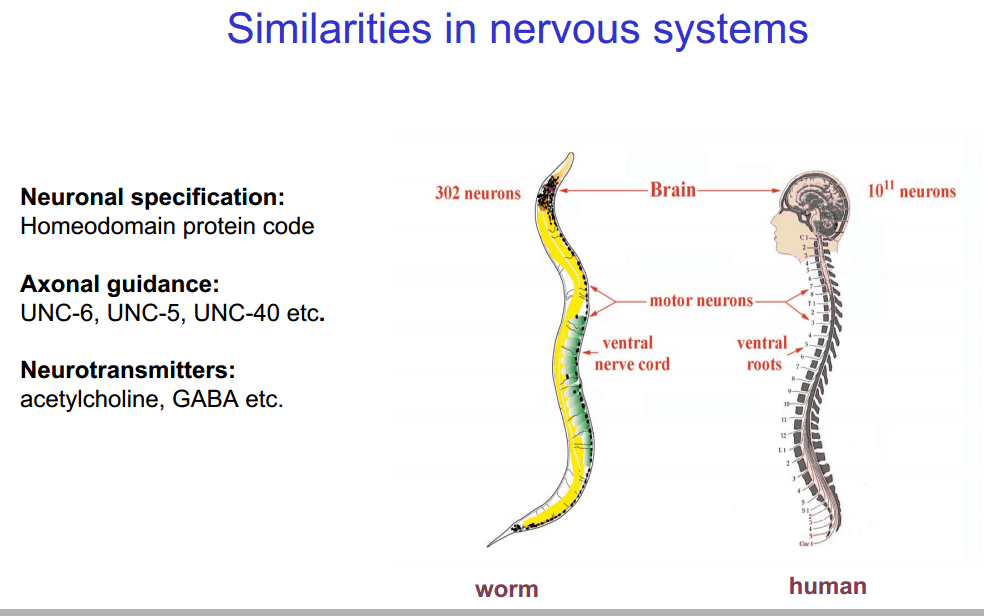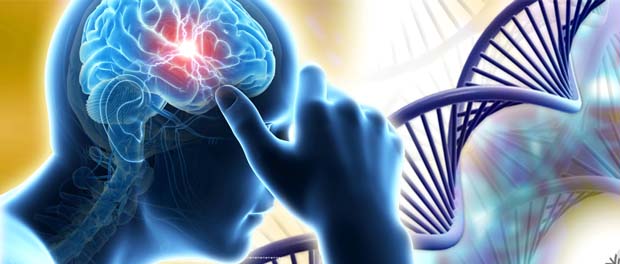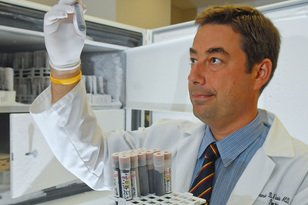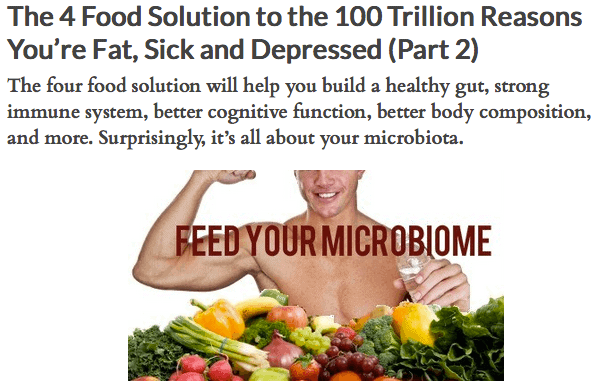The 5 Supplements, 2 Drugs and 1 Food That Can De-stress Your Life and Increase Your Lifespan
Although it’s complicated to prove, studies reveal that you can reduce stress and increase your lifespan simply by properly feeding yourself – and your bacteria. Yes, those 100 trillion critters can’t be ignored. Here’s what to do…
IT’S AMAZING to me how doing simple things can have such profound effects. As you’ll soon discover, just tweaking your supplements and diet can substantially affect your stress levels, your health and potentially increase your lifespan.
Certainly worth checking a bit of time learning about.
What you’ll learn in this article:
- How stress and depression can shorten your lifespan;
- Why one simple ingredient in some foods can increase the probability of living a long and healthy life by 80%; and
- What supplements, (perhaps even drugs) may increase lifespan by affecting a certain longevity gene’s expression.
Let’s begin at the School of Medicine at Indiana University. Scientists there joined with their brethren at the Scripps Research Institute. Together they identified a series of genes that may modulate the effects of good or bad mood and response to stress on lifespan as reported by Science Daily.
Of Worms and Men – How To Reduce Depression and Stress and Increase Your Lifespan Too
The study was led by Alexander B. Niculescu III, M.D., Ph.D., professor of psychiatry and medical neuroscience at the Indiana University School of Medicine. He and his team grabbed some worms (C. elegans, a roundworm) and humans. With these two decidedly different species, they identified a series of genes that may modulate the effects of good or bad mood and the response to stress on lifespan. In particular, the research pointed to a gene known as ANK3 as playing a key role in affecting longevity.

What do roundworms have to do with humans? Inexplicably, the majority of human disease genes and disease pathways are present in C. elegans. (1) In this study, the researchers first identified which worm genes affected by an antidepressant drug called “mianserin” are also in humans. These are genes that are associated with depressive symptoms.
What was discovered is that mitochondrial dysfunction was the top biological pathway for mood and stress-modulated longevity. You may be aware that there’s increasing evidence suggesting a causative link between mitochondrial dysfunction and aging. This has spawned a cottage industry of supplements (such as Nicotinamide Riboside and Elysium’s Basis supplement) that seek to beef up mitochondrial function, which I’ve covered in various articles published on this site.
Click here for links to my articles discussing mitochondria.
Interestingly, Dr. Niculescu and his team used bioinformatics drug repurposing analyses to reveal a series
of compounds that may act on these ANK3 genes and promote longevity; namely:
- Omega-3 fatty acid DHA (docosahexaenoic acid);
- Piracetam;
- Quercetin;
- Vitamin D;
- Resveratrol;
- Rapamycin; and
- Various antidiabetic drugs (perchance, Metformin).
(Note: Read why Pterostilibene is probably better than Resveratrol.)
You now have a list of five supplements and two pharmaceutical drugs to consider adding to your anti-aging regimen, but what about that food ingredient I mentioned?
That’s next up.
Fiber, the 1 Food Substance You Must Consume Aplenty
Could it be that totally uninspiring, mundane fiber could have anything to do with extending both healthspan (the number of years lived healthily) and lifespan?
Yes, fiber is our “1 Food” (well, really a dietary material) that does all that.
What you do know about fiber is that it keeps you regular, as in regularly visiting the commode. What you may not know about fiber is that it’s been shown to reduce blood pressure and reduce the risk of developing adult-onset (type-2) diabetes. (2, 3)
Not to mention, longevity.
To glean how fiber might increase your lifespan, we hop down to Australia where researchers from the Westmead Institute for Medical Research lead by Professor Bamini Gopinath, PhD. 
The Australian research team performed a benchmark population-based study that examined a group of more than 1,600 adults, ages 50 years and older, for systemic diseases and long-term sensory loss risk factors as reported at WorldHealth.net.
Their focus was on the relationship between carbohydrate nutrition and healthy aging. The factors they examined included:
- Total carbohydrate intake;
- Total fiber intake;
- Glycemic index and load; and
- Sugar intake.
You can already guess the conclusion: The fiber made the greatest difference in what the researchers called “successful aging” (which was defined as the absence of disability, cognitive impairment, depressive symptoms, respiratory symptoms, and chronic diseases including cancer coronary artery disease, and stroke.)
Click here to learn about sugar's impact.
Perhaps you’d think that the level of sugar intake would have the largest impact on successful aging, and ordinarily it might. However, as Dr. Gopinath pointed out, the group they studied were older adults, whose carbonated and sugary drink intake was fairly low. If sugar consumption was high, it would likely have a deleterious affect on aging.
Do you consume sugary drinks and/or food? If so, do yourself a favor and become familar with the risks of consuming sugar:
How Sugar Messes With Your Libido
Sugar Lover, Which Type Are You?
Are You Getting Fat and Sick From Sugar?
Are You A Bit Addicted to the Holy Trinity of Salt, Sugar and Fat?
Sugar Is A Toxin, Say Three Celebrity Doctors. Watch The Interviews
The lead author of the study lead author of the paper, Dr. Bamini Gopinath, said:
Out of all the variables that we looked at, fiber intake — which is a type of carbohydrate that the body can’t digest — had the strongest influence.
Essentially, we found that those who had the highest intake of fiber or total fiber actually had an almost 80 percent greater likelihood of living a long and healthy life over a 10-year follow-up. That is, they were less likely to suffer from hypertension, diabetes, dementia, depression, and functional disability. (4)
Why was fiber so meaningful to successful aging?
Well, dear reader, I’m going to make some learned guesses to answer that question, because none were described in the article.
First off, given that high blood pressure can lead to various cardiovascular diseases and that heart disease is the leading cause of death in the United States, it’s safe to assume that anything that reduces heart disease increases longevity.
Same thing with diabetes. WebMD reports that diabeties cuts approximately 8.5 years off the life span of the average 50-year-old compared to the same-aged non-diabetic. In fact, older adults with diabetes have a lower life expectancy at every age compared to people who don’t have the disease.
But there may be more!
I’m going to go out on the proverbial limb with my contention that fiber may be so important to extending both healthspan and lifespan because it feeds the trillions of beneficial bacteria that make up our microbiome.
I spent last week twiddling away on the Microbiota chapter of my forthcoming book, The Ageproof Method, and as you’ll see in a minute, fiber is a big part of such a story.
Microbiota is the ecological community of various beneficial and harmful microorganisms that literally share our body space, both inside us (particularly in our gastrointestinal tract) and upon us (our skin). It may be mind-boggling to conceive it, but there are about ten times more bacterial cells on and in you than those that are you, as in human cells.
(Read How To Feed 100 Trillion Guests.)
The discoveries made about our microbiota and its affect on our health is fairly new and astounding. The evidence says that all those buggies profoundly influence our immune system, inflammation, gut health, body composition, brain function, mood — and through all that and more – possibly our longevity.
Pertinent to our topic at hand (fiber) the upshot of all this is that you want to feed the beneficial bacteria that is so important to health, and starve the pathogenic bastards that want to send you to an early grave after making you chronically ill for a spell.
In my article, The 4 Food Solution to the 100 Trillion Reasons You’re Fat, Sick and Depressed, I spelled out just how to feed those good bugs. I’ll save you some reading… you need to do this on a regular basis:
- Consume phytochemically-rich foods
- Consume probiotics
- Consume prebiotics
- Consume pea protein
Typically, phytochemically-rich foods are full of fiber, such as green leafy vegetables, beans, lentils, seeds (chia, hemp, flax) and some fruits (apples, blackberries, pears).
Probiotics are beneficial bacteria and yeast, and can number in the billions in capsules of them offered by many supplement companies, and are also found mainly in milk byproducts, such as yogurt and kefir.
Prebiotics are not the probiotics, though they’re typically lumped together. Prebiotics are food (kinda like fertilizer) for probiotics, typically found in specialized plant fibers, such as Jerusleum Artichokes, asparagus, leeks and yams. It’s more important to focus on consuming them than probiotics, which you can glean by the following table provided by Prebiotin and the video below:
|
PREBIOTIC VS PROBIOTIC |
|
| PREBIOTICS | PROBIOTICS |
| PREBIOTICS are a special form of dietary fiber that acts as a fertilizer for the good bacteria in your gut. | PROBIOTICS are live bacteria in yogurt, dairy products and pills. There are hundreds of probiotic species available. Which of the hundreds of available probiotics is best for the average healthy person is still unknown. |
| PREBIOTIC powders are not affected by heat, cold, acid or time. | PROBIOTIC bacteria must be kept alive. They may be killed by heat, stomach acid or simply die with time. |
| PREBIOTICS provide a wide range of health benefits to the otherwise healthy person. Most of these have been medically proven. | PROBIOTICS are still not clearly known to provide health benefits to the otherwise healthy. Some are suspected but still not proven. |
| PREBIOTICS nourish the good bacteria that everyone already has in their gut. | PROBIOTICS must compete with the over 1000 bacteria species already in the gut. |
| PREBIOTICS may be helpful for several chronic digestive disorders or inflammatory bowel disease. | Certain PROBIOTIC species have been shown to be helpful for childhood diarrhea, irritable bowel disease and for recurrence of certain bowel infections such as C. difficile. |
Watch this:
One more thing about fiber is that there are two kinds, soluble and insoluble. As the name suggests, soluble fiber can be digested, whereas insoluble fiber passes through our digestive system largely intact.
Here’s a chart that breaks down the basics about fiber, which I put together from material from a University of Colorado document:
| Soluble Fiber | Insoluble Fiber |
|
Functions: |
|
| – Bind with fatty acids.
– Prolong stomach emptying time so that sugar is released and absorbed more slowly. |
-Move bulk through the intestines.
-Control and balance the pH (acidity) in the intestines.
|
|
Benefits: |
|
| -Lower total cholesterol and LDL cholesterol (the Bad cholesterol), thereby reducing the risk of heart disease.
-Regulates blood sugar for people with diabetes.
|
-Promote regular bowel movement and prevent constipation.
-Remove toxic waste through colon in less time. -Helps prevent colon cancer by keeping an optimal pH in intestines to prevent microbes from producing cancerous substances. |
|
Food Sources: |
|
| -Oat/Oat bran.
-Dried beans and peas. -Nuts -Barley -Flax seed -Fruits such as oranges and apples. -Vegetables such as carrots. -Psyllium husk (typically in powdered form). |
-Vegetables such as green beans and dark green leafy vegetables.
-Fruit skins and root vegetable skins -Whole wheat products. -Wheat bran -Corn bran -Seeds & Nuts |
Last but not least, you need to know about Resistant Starch!
Resistant Starch is heralded as a biohack of the decade because all by its lonesome it can:
- Improve blood glucose & metabolism
- Improve sleep and “movie-like” vivid dreams
- Enhance energy, mood and well-being
- Improve digestion and bowel movements
There are four different types of Resistant Starch, which you can read about here, but suffice to say that you want to consume RS2 (the second type) that can be found in uncooked potato, green banana flour and high amylose corn, as well as in supplement formulations, such as Resistant Starch Powder.
Got four minutes? If so, watch this animation of how Resistant Starch moves through the intestine, feeds the healthy bacteria of the gut Microbiome and helps prevent cancer:
(Go here for an excellent overview of the health benefits of Resistant Starch and why you must consume at least 20 grams a day of it.)
Which leaves us with the fourth important fiborous food source for our microbiome, pea protein.
You could eat peas, but in their natural state, peas don’t have much protein, so why not kill two birds with one stone and get your protein and cultivate a healthy microbiome by consuming pea protein powder?
Within 30 minutes of awakening, make a smoothie consisting of:
- Almond milk, coconut milk or water
- 20 grams of pea protein powder
- A couple of tablespoons of chia, hemp or flax seeds
- One half frozen banana
- One cup of blueberries (frozen OK)
- One or more cups of spinach (frozen OK)
The amount of the liquid is dependent on the consistency desired. Blend it all up and let it sit for a few minutes to let the seeds expand a bit (but make sure they don’t make an undrinkable pudding of the mixture) before drinking.
This smoothie will feed the beneficial bacteria in you, satiate you and ensure you start your day on the right foot (whatever that means).
Your Takeaway
Remember these three things:
- Stress/depression and harmful bacteria can cause or accelerate many chronic disease states that can make you ill and shorten your life.
- You can do a lot to prevent this from happening by taking the supplements mentioned, and consistently eating fibrous foods (resistant starch among them), at least 20 grams per day.
- Finally, knowing about something is insufficient to make positive changes, as for that to happen you must DO SOMETHING, so get going…
Last Updated on February 7, 2024 by Joe Garma





